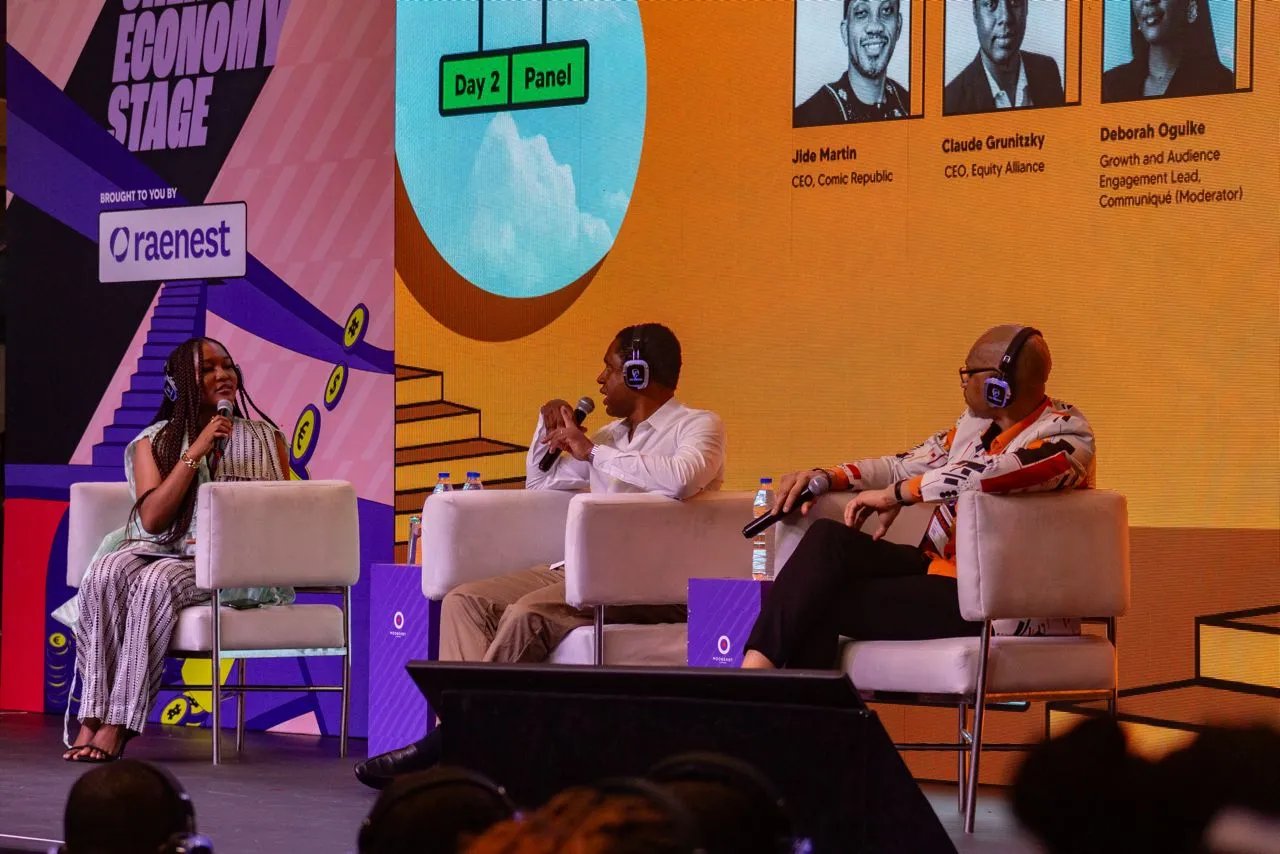At Moonshot 2025, a panel featuring Jide Martin, CEO of Comic Republic, and Claude Grunitzky, co-founder of TRACE TV, explored how digital platforms are transforming the business of creativity across Africa. Moderated by Deborah Oguike, Growth and Audience Engagement Lead at Communiqué, the session unpacked the factors driving this boom and what an African-led digital future could look like.
For Martin, the biggest drivers are access and visibility. “You just need your phone and internet to be a global star,” he said. “You don’t need large infrastructure anymore.” The simplicity of that entry point has created a new kind of creative economy, one powered by individuals, not institutions.
Claude Grunitzky believes three major shifts are driving the rise of digital platforms: widespread smartphone adoption, the growing influence of the African diaspora, and improved tools that enable creators to build for local audiences. Together, these have opened up access to content like never before.
But as global platforms like YouTube, TikTok, and Spotify dominate, the question remains: should Africa build its own?
Grunitzky believes African entrepreneurs should focus on specific industries, such as film, music, and fashion, rather than trying to create one-size-fits-all platforms. “We’ve seen a few local platforms launch and fail,” he said. “Maybe the answer is smaller, specialised ones that can later connect.”
Martin agreed, but argued for coexistence. Local platforms, he said, should reflect African realities while still plugging into global systems. “We can build our own, but we shouldn’t isolate ourselves,” he noted.
Ownership remains central to the conversation. Martin recalled Comic Republic’s journey, creating original intellectual property that gave the company bargaining power. “Once we created value, we could negotiate,” he said. For African creators, value and capacity are the foundation for true ownership.
Both speakers see AI as the next frontier. Grunitzky believes future African platforms must be built on AI and machine learning to stay competitive, but that will require major investment. Martin added that collaboration will be key—local ownership with global reach.
Grunitzky closed with a reminder that Africa’s strength is its youth. “Everyone is a creator now,” he said. “We have the demographics, but we can’t keep giving our creativity away for free in exchange for visibility.”
Get passive updates on African tech & startups
View and choose the stories to interact with on our WhatsApp Channel
Explore




